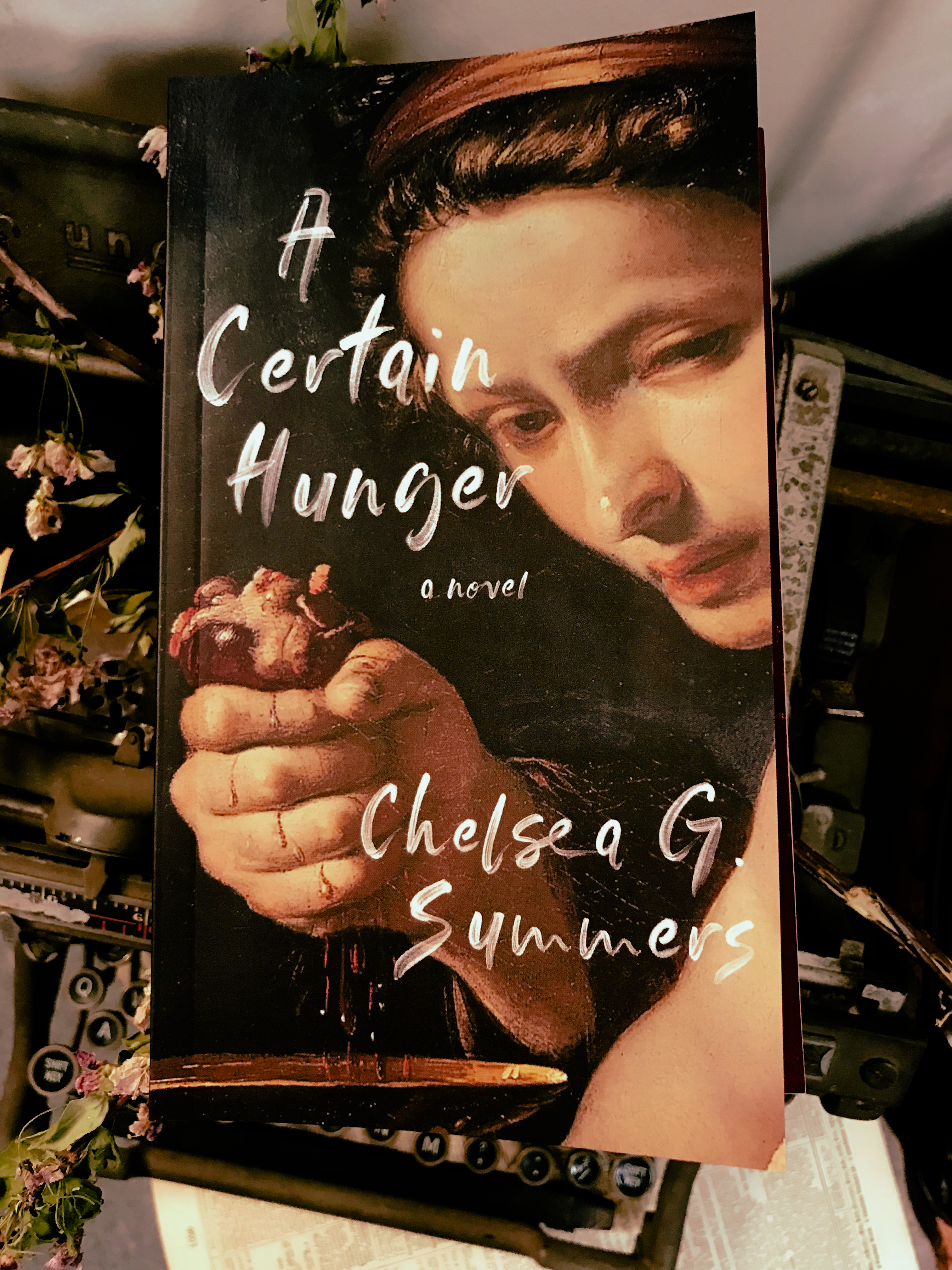
You who call women the fairer sex, you may repress and deny all you want, but some of us were born with a howling void where our souls should sway.
I almost chose not to review this book. Not because I didn't thoroughly enjoy it, but to be honest, I had no idea how to approach it from a reviewer's point-of-view. To be even more honest, I wasn't sure I wanted my grandmother, who lovingly follows my progress on social media, to read this review. (Grammy I'm sorry for the direction this is about to go!) But buckle up, because here I am, ready to dig into what is mostly likely one of the most fucked-up books I've read this year to date.
Dorothy Daniels is a food critic. She enjoys what she does, and loves sex just as much as she loves food. She also happens to be a discerning and meticulous psychopath, murderess, and high-end cannibal. Told in a memoir-esque style, Dorothy recounts her life, the turbulent path from a seemingly idyllic, homegrown, homestead household, to the moment in which she plunges an ice pick into a man's neck on Fire Island, fully embracing her deepest internal desires.
We know from the beginning that this story has an end; that Dorothy is arrested, arraigned, prosecuted, and incarcerated, and she tells us as much in the opening of the book. And yet, it does not stop the book itself from resembling a ball rolling downhill in its tumultuous journey forwards. I felt like I might have been going slowly insane as I read, delving deeper into a strange hypnosis all the while. There's a certain gluttony to this novel in its entirety, a tryptophan-filled dinner that lulls the reader into a deep, unmatched stupor over four courses of a special brand of madness.
And I admit, reading this made me rather hungry. The cannibalism aside, Dorothy is the perfect picture of a sophisticated food critic, dreaming of tantalizing Italian dishes with names and ingredients that I, in all of my Midwestern-grown farm-town ignorance have never heard of, and yet I can feel my mouth watering as Dorothy enlightens me to the world and practiced whims of all of her culinary ways.
Some readers complained about the repetitiveness of these gastronomous name-drops, the pretention of the language, I could only find myself deeper drawn into the lasciviousness of the narrative because of it. I'm not truly sure I liked this novel, only that I enjoyed it. A regrettable and yet delicious meal, if you will.
If you're familiar with the hype around A Certain Hunger when it was first released, it was originally hailed as a criticism of early foodieism, a critique in how gender is defined, and the strained relationship between womanhood and food. In my opinion, it holds up very well in these areas, and showcases a strange understanding of the gender-power dynamic aside.
It's been a few days since I finished this novel and I'm still not sure I've fully digested (hah) my opinions about it or understanding of it, but if I waited until I did, I might never write this review. All I can say is that there's a definite rousing statement being made about the secretive, vicious nature of the female appetite, hidden in public and unleashed in private, but I am perhaps not intellectual enough, or not clear-headed enough to decipher it.
Summers is most definitely in love with metaphor, in love with winding prose and rolling hills of literary class, descriptive language, and pretentious, weighty narrative, and yet for this novel, it works. In my opinion, she's aware of exactly what effect she's having on the reader. It's the literary equivalent of an opulent Tudor feast, and it sits heavy in the stomach long after it's gone. (And here I am, making too many literary-culinary metaphors in Summers' wake).
Likewise, the sexual content is very carnal, very food-adjacent (makes sense given the context of the novel), very shock-factor, harsh-language laden, meant to stir the reader from their feasted stupor. It wasn't appealing, but it was as strange as the rest of the novel and that let it fit right in.
I truly hope Summers will be publishing more fiction in the future, if only so that I can see how well it holds up to my assumption that the heft of this narrative is purposeful and understood.
Overall, I'm left with a strange taste in my mouth and the knowledge that I have tramped down into a spiral of madness and carnal rage and won my way out again, if not with the knowledge that the novel promised, then at least the experience. Like I said, I'm not sure that I liked this novel, only that I enjoyed it. Whatever that means.
I leave you with this: “What is heaven but the hope for righteous acknowledgment, and what is hell but the fear of discovery.”
If you enjoy the work I do, consider supporting me on Ko-fi, subscribing to my Patreon where there are more Patron-only posts just like this, signing up for my newsletter, or simply checking out the rest of my work on my site. As always, thanks for reading!